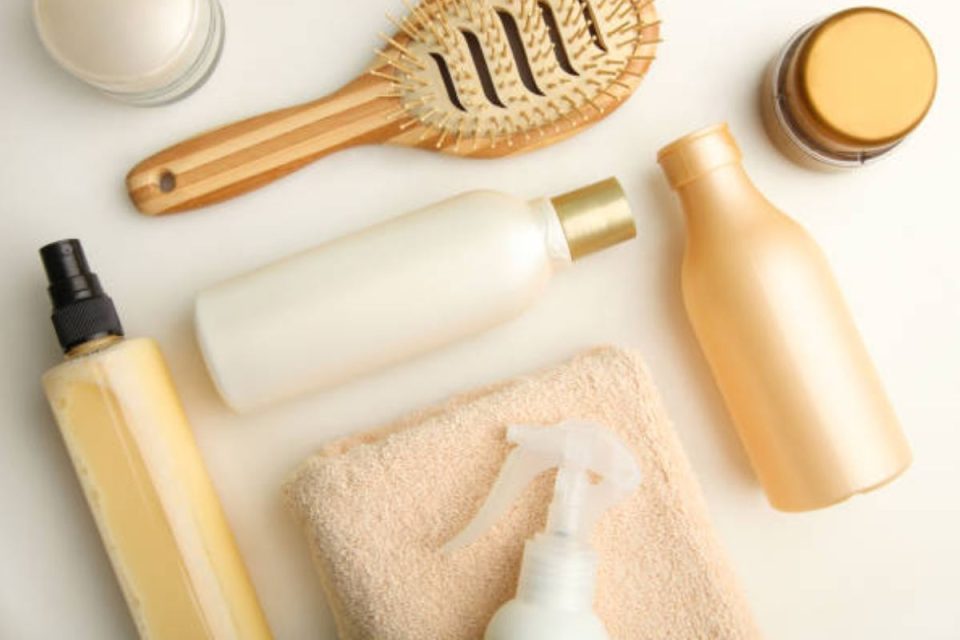Hair conditioners are hair care products designed to improve hair’s texture, appearance, and manageability. They add moisture to the hair and smooth the cuticle layer, which helps prevent tangles, reduce frizz, and make the hair easier to comb and style. Unlike traditional conditioners containing synthetic chemicals, people prefer natural hair conditioner made from ingredients derived from plants, fruits, and essential oils.
Table of Contents
There are several types of hair conditioners available on the market.
- Rinse-out: These are the most common type of conditioners that are used after shampooing. They are applied to wet hair, left on for a few minutes, and then rinsed.
- Leave-in: These are designed to be left on the hair after shampooing and not rinsed out. They are usually lightweight and work to detangle hair, reduce frizz, and add shine.
- Deep: These are intensive treatments designed to nourish and repair damaged hair intensely. They are usually left on for a more extended period (up to 30 minutes or more) and can be used once a week or as needed.
- Co-wash: These are cleansing conditioners used in place of shampoo to cleanse the hair while also conditioning it gently.
In this article, you will read about the benefits of using a conditioner made from natural ingredients and tips on choosing the right one for your hair type.
Benefits
1: Chemical-free
Natural conditioners are free of harsh chemicals that can damage your hair over time. However, natural conditioners are made from gentle, nourishing ingredients that help strengthen and moisturize your hair without damaging it. Many hair conditioners contain sulfates, parabens, and silicones, that might strip your hair of its natural oils and leave it dry, brittle, and prone to breakage.
2: Nourishment
Natural conditioners are packed with vitamins, minerals, and other nutrients that help to nourish your hair from the inside out. Ingredients like coconut oil, shea butter, and jojoba oil are rich in fatty acids and antioxidants, which help to strengthen and protect your hair against environmental stressors like UV radiation and pollution.
How to Choose the Right Natural Hair Conditioner?
Know your hair type
Before choosing a natural conditioner, knowing your hair type is essential. Is it curly or straight? Is your hair dry, oily, or somewhere in between? Knowing your hair type will assist you choose a conditioner tailored to your needs.
Look for ingredients that are good for your hair
When choosing a natural conditioner bars, look for beneficial ingredients for your hair type. For example, if you have dry hair, look for ingredients like shea butter, coconut oil, and avocado oil that help to moisturize and nourish your hair.
Consider the texture of the conditioner
Natural hair conditioner comes in various textures, from creamy to oily to watery. Consider the conditioner’s texture and how it will work with your hair type. For example, if you have fine hair, choose a lightweight conditioner that won’t weigh your hair down. You also need to ensure that the conditioner or shampoo suitable for fine and oily hair is not too moisturizing, else post-washing, your hair will be oily and greasy. Therefore, knowing your hair type and the appropriate ingredients in the product is key to getting the best results from any hair care product.
Final Thoughts
Natural hair conditioner can benefit your hair and scalp remarkably. From nourishing and strengthening hair to being environmentally friendly, these products are great for you. However, choosing the right product for your hair type is important to ensure you get the best results. It’s important to note that natural conditioners may not work for everyone, and it’s always a good idea to patch-test new products before using them on your hair. Additionally, it’s important to remember that natural ingredients may have different effects on different hair types, so it’s a best idea to do some research and choose appropriate components for your hair type and concerns.

